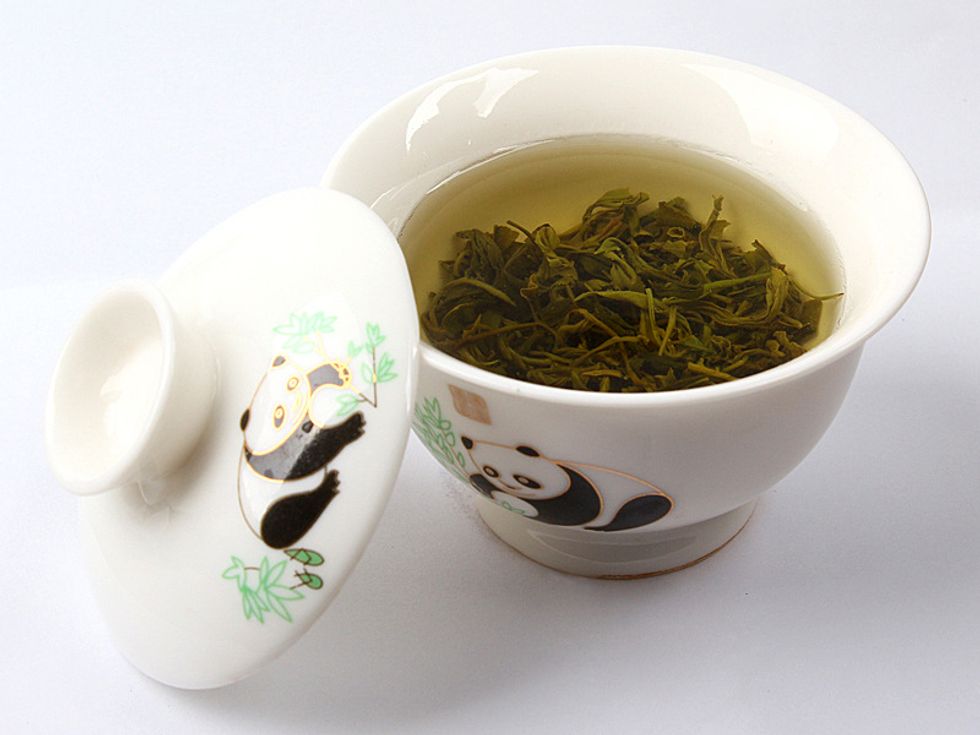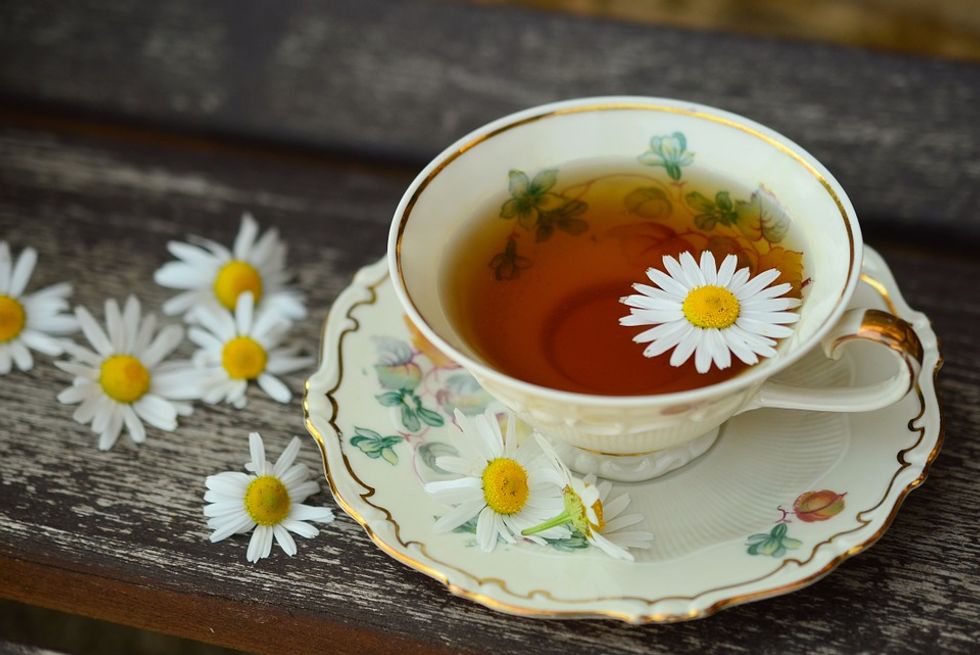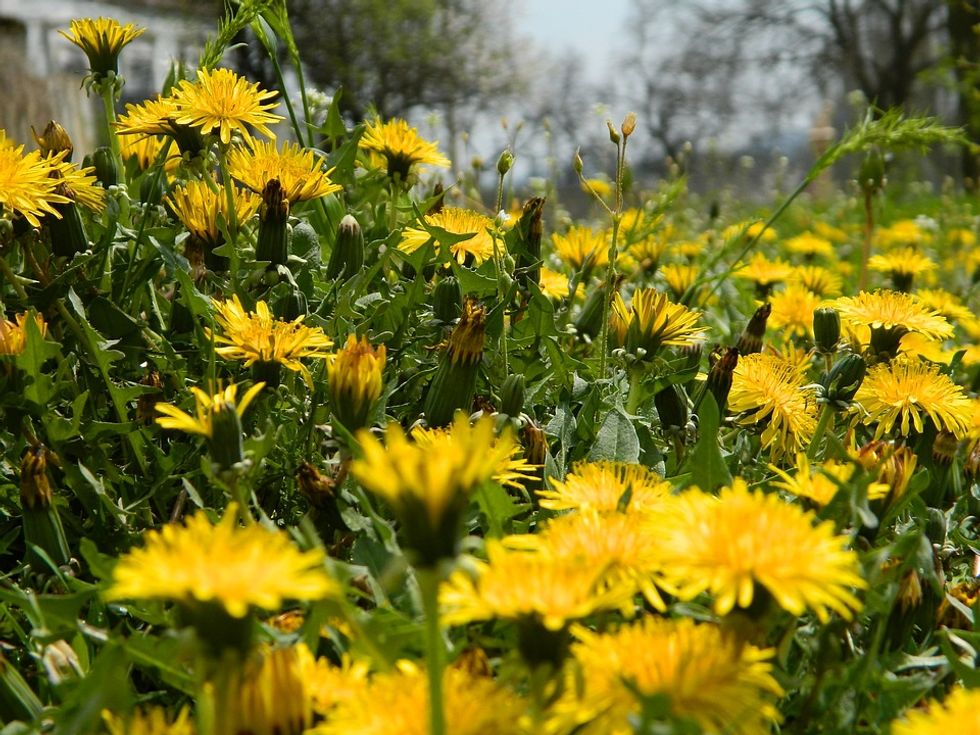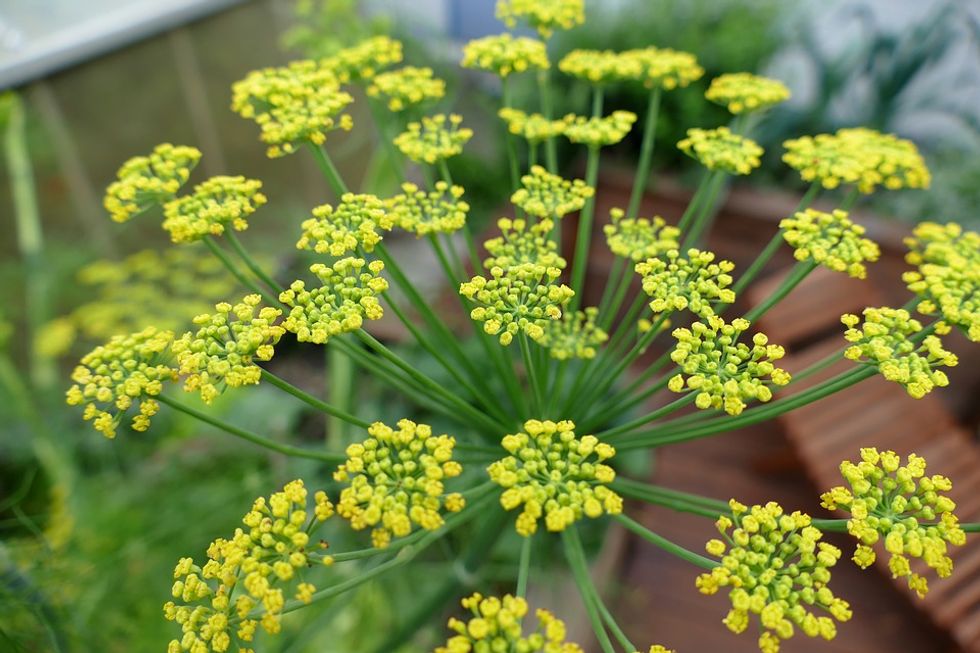Teas have long been a part of traditional medicine. Here are a few teas that can help alleviate the symptoms of common ailments!
Green Tea
 I drink green tea for caffeine minus the jitters and the
I drink green tea for caffeine minus the jitters and the shits stomach problems coffee tends to give me. A cup of green tea contains about a third of the caffeine of a cup of coffee, so its effects are more subtle and slow-burning than that of coffee (or even black tea, which is twice as caffeinated as green tea). It also contains antioxidants and helps boost your metabolism! It's even been linked by some studies to help prevent maladies ranging from cancer to infection.
Fun Fact:
Black, pu-erh, oolong, green, white, and yellow teas are all made from the same plant, Camellia sinensis. The main difference between them is their level of oxidation, which changes caffeine levels and other qualities.
Echinacea
 Echinacea (pronounced ek-a-nay-sia) tea is made from the flowers pictured above, and its effectiveness as an herbal remedy is powerful enough that it's often sold at pharmacies as an OTC option to cope with symptoms of the cold and flu (particularly coughs and sore throats). Though its medical uses for things ranging from syphilis to rattlesnake bites may be debated, it was used for general medical purposes by some Native American tribes for centuries.
Echinacea (pronounced ek-a-nay-sia) tea is made from the flowers pictured above, and its effectiveness as an herbal remedy is powerful enough that it's often sold at pharmacies as an OTC option to cope with symptoms of the cold and flu (particularly coughs and sore throats). Though its medical uses for things ranging from syphilis to rattlesnake bites may be debated, it was used for general medical purposes by some Native American tribes for centuries.
Chamomile
 Chamomile tea is also made from a flower, and is commonly used to treat anxiety and upset stomachs. Generally, it's a great way to help you get to sleep faster and can be combined with other herbs to help treat nausea, heartburn, and colicky babies. Chamomile is an Old World herb, and its use can be traced back to Ancient Egypt (where it was used in embalming oils) and Greece and Rome (where it was used for medicine and aroma).
Chamomile tea is also made from a flower, and is commonly used to treat anxiety and upset stomachs. Generally, it's a great way to help you get to sleep faster and can be combined with other herbs to help treat nausea, heartburn, and colicky babies. Chamomile is an Old World herb, and its use can be traced back to Ancient Egypt (where it was used in embalming oils) and Greece and Rome (where it was used for medicine and aroma).
Dandelion
 Before they were considered yard nuisances, Dandelions were cultivated in European gardens for their effects in treating various gut ailments, like constipation, upset stomach, and gassiness, as well as Tonsillitis. As with any herbal remedy, scientific studies are divided, but if it served as a placebo for all of Europe, I suppose it's good enough for me.
Before they were considered yard nuisances, Dandelions were cultivated in European gardens for their effects in treating various gut ailments, like constipation, upset stomach, and gassiness, as well as Tonsillitis. As with any herbal remedy, scientific studies are divided, but if it served as a placebo for all of Europe, I suppose it's good enough for me.
Fennel
 fennel as a welcome addition to Mediterranean and Italian dishes in the form of seeds, bulbs, or leaves, as a cup of tea, it can help alleviate gastrointestinal issues and heartburn. Allergies to this tea may be more common than to others on this list because it's in the same botanical family as carrots and celery.
fennel as a welcome addition to Mediterranean and Italian dishes in the form of seeds, bulbs, or leaves, as a cup of tea, it can help alleviate gastrointestinal issues and heartburn. Allergies to this tea may be more common than to others on this list because it's in the same botanical family as carrots and celery.
Of course, all the effects of these teas are still debated, but at the least, they're a good starting point if you're wanting to stock up on self-care.
























